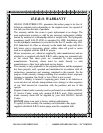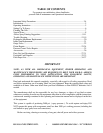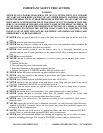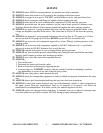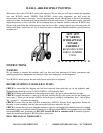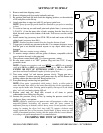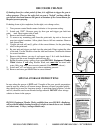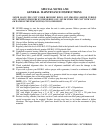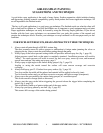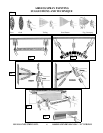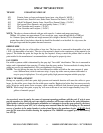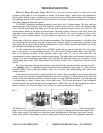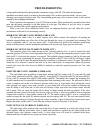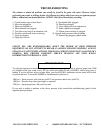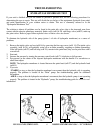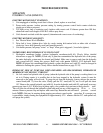
H.E.R.O. INDUSTRIES LTD. 1000MD OWNERS MANUAL - “B” VERSION
9
AIRLESS SPRAY PAINTING
SUGGESTIONS AND TECHNIQUE
A good airless spray application is the result of many factors. Surface preparation, which includes cleaning
and degreasing, priming, material compatibility, quality finish product and correct application technique. All
are all important to the finished results.
The key to all good applications is a good spray gun technique. The finished results are what the client will
look at and base his opinion on. Your skill and abilities are as important as good equipment and good paint.
Proper application techniques can easily be learned by using the following simple guidelines. If you are not
familiar with the basic spray techniques we recommend that you study this portion of the manual and
practice the techniques shown. Practice your technique on scrap cardboard or old newspaper until you feel
confident.
FOR EXCELLENT RESULTS, READ AND PRACTICE THESE TECHNIQUES
1. Always strain all paint through a H.E.R.O. strainer bag.
The most common reason for airless sprayers to malfunction is foreign matter jamming the valves or
plugging the tip. Always strain the paint before putting through the pump.
2. Always spray at the lowest pressure setting which will provide a uniform spray fan. (fig. 1, page 10)
Adjust pressure control knob so that paint is completely atomized . Insufficient pressure will result in
"tailing". Too much pressure will result in excess fog and over spray, excess tip wear, and increased
sprayer wear and tear. See setting up to spray, page 5.
3. Always spray at right angles to the surface being sprayed. (fig. 2, page 10)
Angling or arcing the nozzle toward the surface will
cause uneven coverage and excessive
overspray.
4. Always hold spray gun 12-15 inches from spray surface. (fig. 3, page 10)
Too close and the fan width will be reduced and material will be applied too heavily (runs).
Too far from the surface and you will have excessive overspray and light coverage (transparent).
5. Always move the gun parallel to the surface being sprayed, at a consistent speed.
This avoids uneven coverage (thick or thin areas).
6. Always start the spray stroke before triggering the gun and release the trigger before completing the
stroke. (fig. 4, page 10)
This avoids heavy build up of paint at either end of the spray stroke.
7. Always lap your spray pattern by one half. (fig. 5, page 10)
This assures full coverage of the surface being painted.



